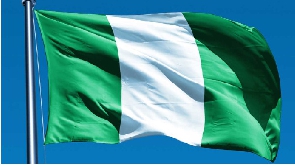Business activities in the country has shown consistent growth 15 months in a row since September 2016. Consequently, the Ghanaian private sector ended the year 2017 with solidly improved conditions marked by growth in output and new purchasing orders. This was contained in the just released December 2017 edition of the Standard Bank Purchasing Managers Index (PMI). Businesses responded to the higher demand by increasing their input buying and stocks of purchases.
The report further indicates that although new orders continued to rise in December, the rate of expansion slowed sharply from the previous month to the weakest since September 2016. In instances where new business increased, the growth was linked to good quality products and successful marketing strategies. The rate of expansion in output also eased, but remained solid amid the growth of new orders.
The PMI also reported a sharp rise in purchasing activity at the end of the year in line with higher client demand. This resulted in another accumulation of stocks of purchases. Some panelists also linked inventory building to expectations of further improvements in demand in coming months. Overall input prices rose at the fastest pace in nine months during December.
Commenting on the December survey findings, Ayomide Mejabi, Economist at Standard Bank, the parent group of Stanbic Ghana said the strong PMI readings for December 2017 indicates strong growth for the Ghanaian economy in 2018. “This relatively strong PMI reading suggests that while the economy is unlikely to record the same level of growth that it did in the third quarter (9.3% y/y), it should remain robust.
Heading into 2018, we expect Ghana’s economy to continue posting strong growth, albeit slightly weaker than in 2017 as the strong base effects wear off. In December 2017, headline inflation will probably rise slightly higher than the 11.6% y/y posted in November, especially as the output price PMI also rose to 55.0 from 54.6 in November”, Mr. Mejabi said.
The Standard Bank Purchasing Managers’ Index is based on data compiled from monthly replies to questionnaires sent to purchasing executives in approximately 400 private sector companies, which have been carefully selected to accurately represent the true structure of the Ghanaian economy, including agriculture, construction, industry, services and wholesale & retail. The panel is stratified by GDP and company workforce size.
Survey responses reflect the change, if any, in the current month compared to the previous month based on data collected mid-month.
For each of the indicators the ‘Report’ shows the percentage reporting each response, the net difference between the number of higher/better responses and lower/worse responses, and the summary unadjusted and seasonally adjusted values. The unadjusted summary value is calculated as the sum of the positive responses plus a half of those responding ‘the same’.
Click to view details



Business News of Friday, 19 January 2018
Source: Sandra Manu
Business activities show consistent growth in 2017
Opinions
















